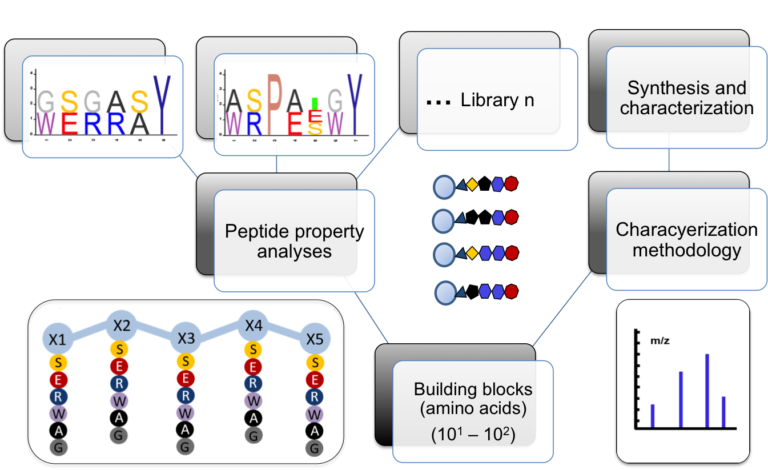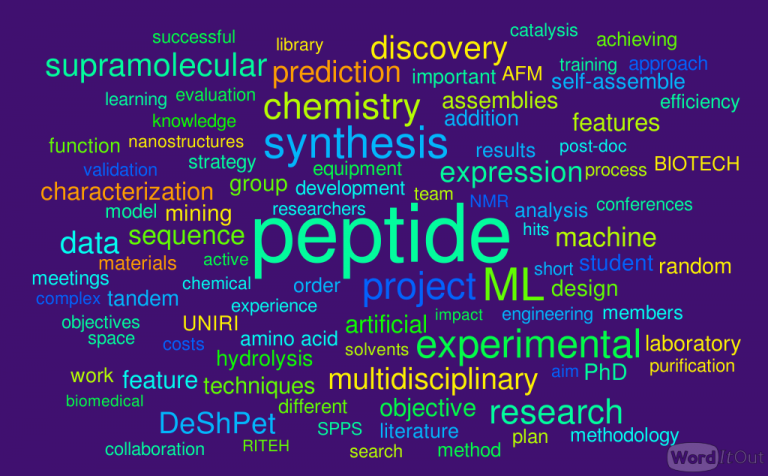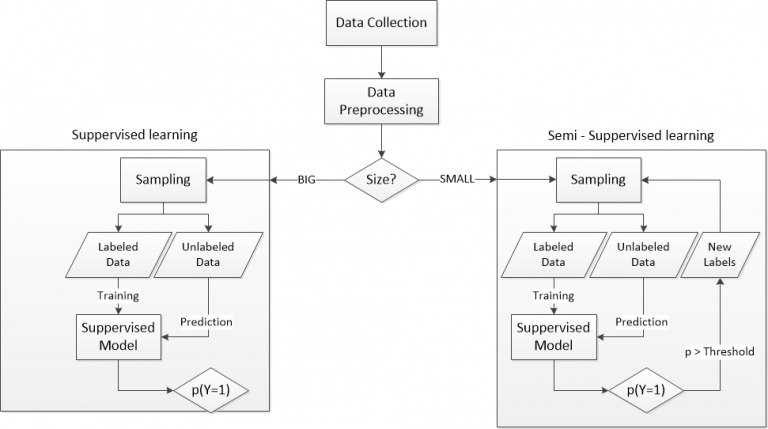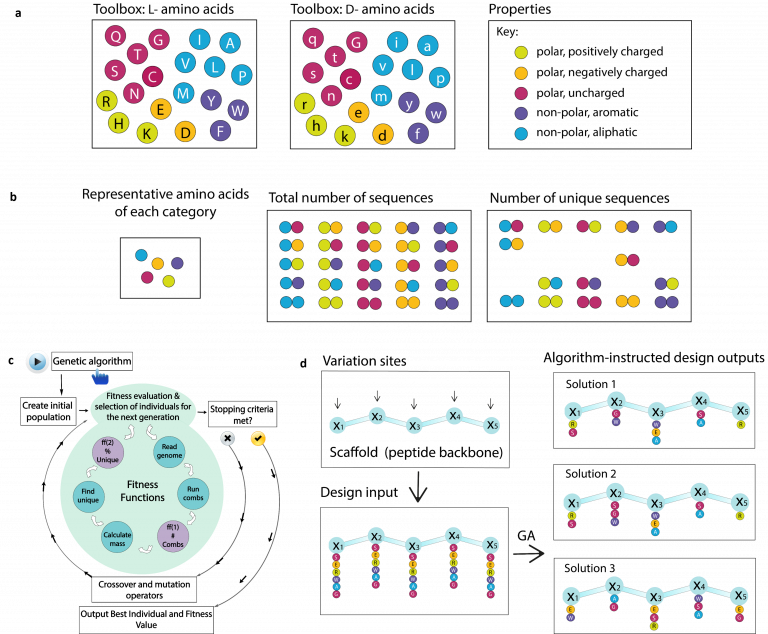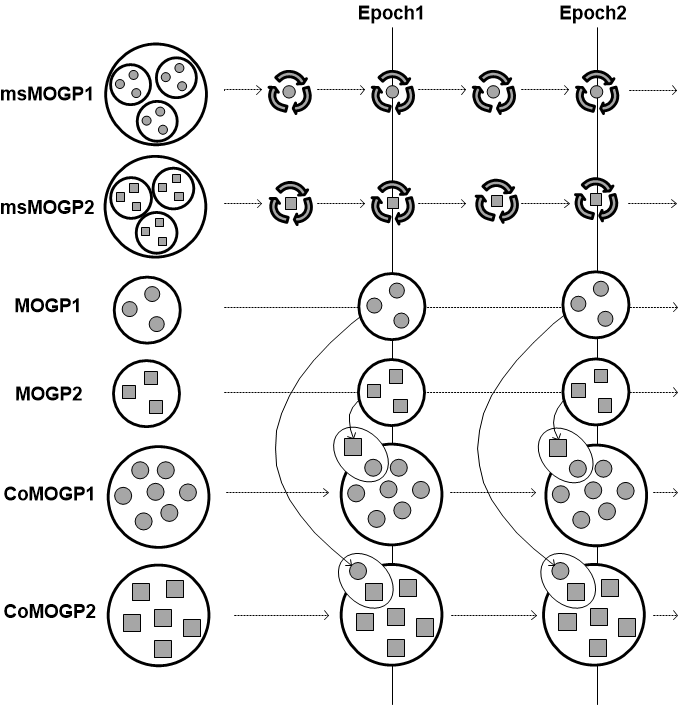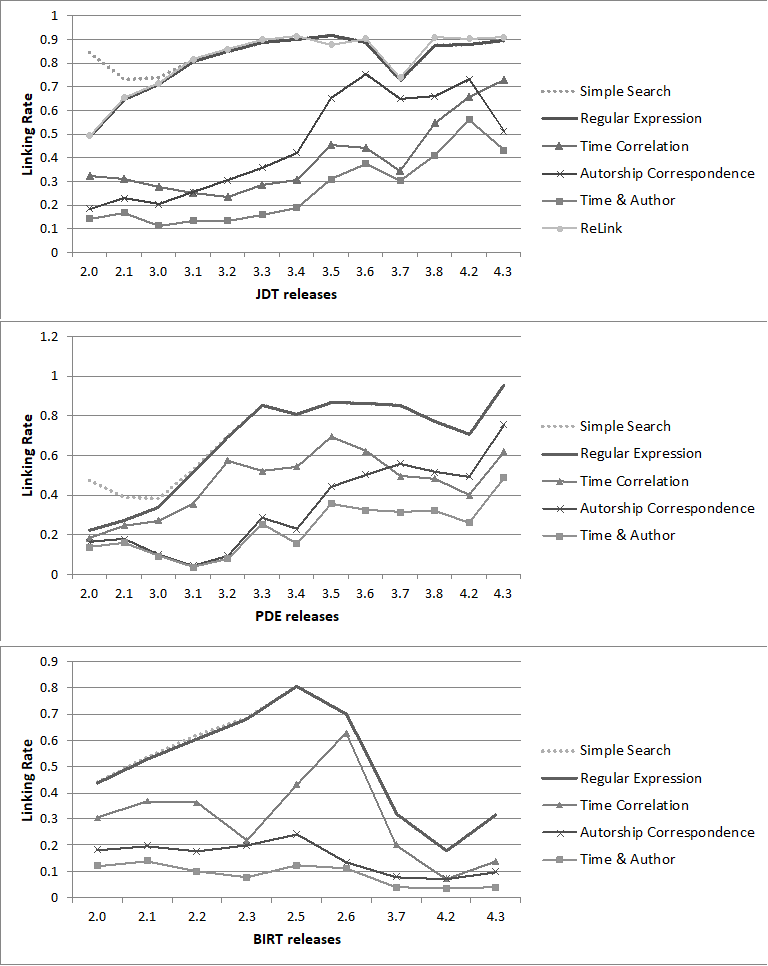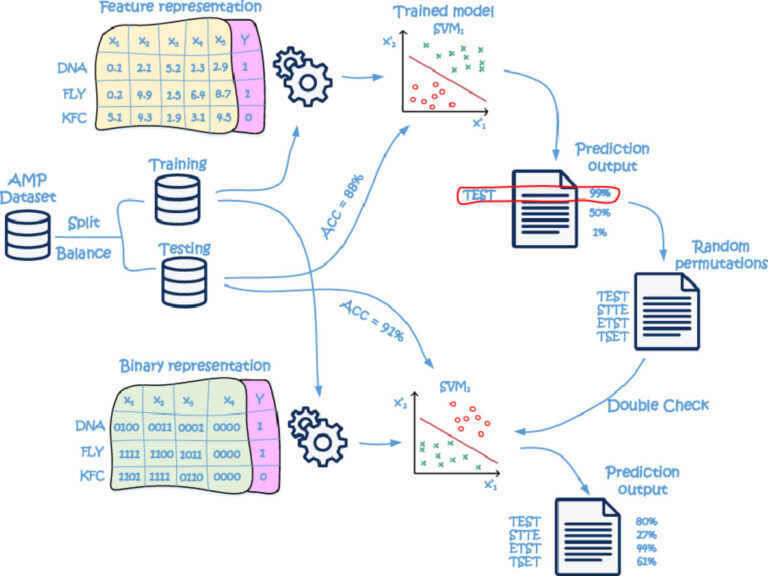
Laboratory for Data Mining, Open and Big Data
Bottom-Up Design Approach for OBOC Peptide Libraries
Design of short catalytic peptides and peptide assemblies (DeShPet)
Institution: University of Rijeka, Department of Biotechnology
Applying Machine Learning for the Discovery of Peptides with Catalytic Activity
Institution: Faculty of Engineering, University of Rijeka Objective: The aim of this project proposal is to build a catalytic activity prediction model for peptides that would drive a smart exploration of huge chemical search space.
Algorithm-supported, mass and sequence diversity-oriented random peptide library design
Random peptide libraries that cover large search spaces are often used for the discovery of new binders, even when the target is unknown. To ensure an accurate population representation, there is a tendency to use large libraries. However, parameters such as the synthesis scale, the number of library members, the sequence deconvolution and peptide structure […]
Co-evolutionary Multi-Population Genetic Programming for Classification in Software Defect Prediction: an Empirical Case Study
Evolving diverse ensembles using genetic programming has recently been proposed for classification problems with unbalanced data. Population diversity is crucial for evolving effective algorithms. Multilevel selection strategies that involve additional colonization and migration operations have shown better performance in some applications. Therefore, in this paper, we are interested in analysing the performance of evolving diverse ensembles using […]
A Systematic Data Collection Procedure for Software Defect Prediction
Software defect prediction research relies on data that must be collected from otherwise separate repositories. To achieve greater generalization of the results, standardized protocols for data collection and validation are necessary. This paper presents an exhaustive survey of techniques and approaches used in the data collection process. It identifies some of the issues that must […]
